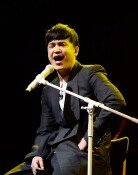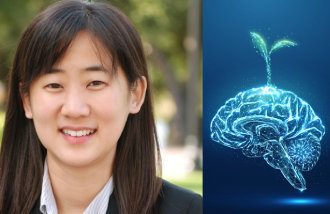Judicial risk surrounding politicians
Judicial risk surrounding politicians
Posted February. 26, 2025 07:23,
Updated February. 26, 2025 07:23
With President Yoon Suk Yeol’s final statement delivered, the impeachment trial now awaits a verdict. Yoon’s political power has crumbled, and regardless of his punishment, South Korea must now consider its next steps toward recovery and healing. The most urgent priority would be choosing a better leader this time around.
To do that, the nation must first confront the Myung Tae-kyun scandal head-on. It has been six months since Myung’s disclosures nudged the ruling party into a “political blackhole," dragging major conservative presidential hopefuls into a relentless spiral of suspicion—even after Myung’s arrest.
Seoul Mayor Oh Se-hoon is accused of having an aide cover the costs of an opinion poll conducted by Myung’s team ahead of the 2021 by-election. Daegu Mayor Hong Joon-pyo faces similar allegations tied to his 2022 campaign. Despite their forceful denials, fresh allegations continue to emerge — rumors of secret meetings and claims that Hong’s son messaged Myung for favorable consideration. Many voters now fear a repeat of the "Lee Jae-myung judicial risk" if they support conservative candidates. Even those who back Yoon’s impeachment struggle to support Lee, the Democratic Party leader, who lost his parliamentary seat after a conviction for violating election law.
Lee’s legal entanglements have fueled years of political deadlock, repeatedly making it impossible to make legislative progress. To avoid falling into yet another cycle of political deadlock, South Korea urgently needs an independent investigation into Myung’s allegations—not as a political weapon but to protect voters’ right to make informed choices. Yet both sides remain locked in political combat. The ruling People Power Party (PPP) boycotted a legislative subcommittee vote on the special prosecutor bill on Monday, calling it an attempt to attack the ruling party. Even before a full parliamentary vote, PPP lawmakers are poised to ask Acting President Choi Sang-mok to exercise a veto—a move critics say reeks of hypocrisy. After all, it was the PPP that argued that “anyone who rejects special counsel effectively confesses to being a criminal” when it called for a special counsel probe into Lee.
If the PPP is truly innocent, as Mayor Oh and Mayor Hong claimed, now is the time to come forward first and demand scrutiny. In December 2007, former President Lee Myung-bak, then the presidential candidate for the Grand National Party, abruptly accepted the United New Democratic Party's demand for a special prosecutor probe into the BBK scandal, bringing an end to the endless cycle of political clashes.
For the Democratic Party of Korea, winning public trust means proving they won’t abuse the probe to destroy opponents. They must remove contentious provisions—such as allowing raids on ruling party offices or publicizing investigation details—and persuade their rivals. Forcing the bill through parliament, only to see it vetoed and killed, would be another pointless march of folly. The cycle must stop as time is running out.




![“李는 2인자 안둬…조국 러브콜은 정청래 견제용” [정치를 부탁해]](https://dimg.donga.com/c/138/175/90/1/wps/NEWS/IMAGE/2026/01/26/133233066.1.jpg)


